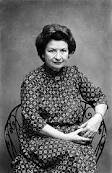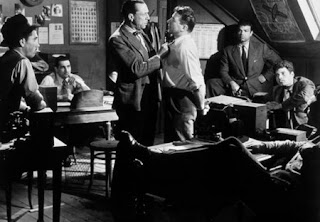Trust
Lindsey Davis' spin-off series from her highly praised Falco series opened in 2013 with The Ides of April in which Falco's adopted daughter, Flavia Albia, went into the PI business by herself. I thoroughly enjoyed it and thought it was a very worthy successor to the much loved Falco's.
The second in the series Enemies at home is equally impressive. When a recently married upper-crust Roman couple are found brutally murdered, their slaves come under suspicion. For slaves there is little justice, and, most likely, they will be tortured and put to death - probably in the amphitheatre, with no chance to speak for themselves. Fearing for their lives they flee to the Temple of Ceres to claim sanctuary.
Albia's love interest Tiberius Manlius Faustus, a plebian aedile, is given the job of getting the slaves out of the temple, where their stay has become a bit of an embarrassment to the authorities. Faustus is not convinced of their guilt, and so asks Albia to find out what really happened. Flavia's investigation will force her to remember parts of her life that she would have preferred to forget, and will bring Roman society and its relationships with the people who kept the Empire running - the slaves - under investigation too. Ultimately it is as much an investigation of the bonds of trust that keeps society together as it is of the homelife of the murdered couple.
This second in the Flavia Albia series is every bit as good as the first. There is much here that will keep Falco fans captivated. Characters from the old series make an occasional appearance, there is the warmth, wit, and odd comic moment so beloved of Falco fans. But, where for me, Flavia Albia rates higher is in the darker quality of the writing. If Falco was Dashiell Hammett, Flavia Albia is Raymond Chandler. There is a rather more serious side to Davis writing in this series, and I find it enthralling. A crackingly good well-constructed crime novel, sharp historical setting, and some unsettling questions about trust and society that resonate even in the twenty-first century. How could you not enjoy this book?
The second in the series Enemies at home is equally impressive. When a recently married upper-crust Roman couple are found brutally murdered, their slaves come under suspicion. For slaves there is little justice, and, most likely, they will be tortured and put to death - probably in the amphitheatre, with no chance to speak for themselves. Fearing for their lives they flee to the Temple of Ceres to claim sanctuary.
Albia's love interest Tiberius Manlius Faustus, a plebian aedile, is given the job of getting the slaves out of the temple, where their stay has become a bit of an embarrassment to the authorities. Faustus is not convinced of their guilt, and so asks Albia to find out what really happened. Flavia's investigation will force her to remember parts of her life that she would have preferred to forget, and will bring Roman society and its relationships with the people who kept the Empire running - the slaves - under investigation too. Ultimately it is as much an investigation of the bonds of trust that keeps society together as it is of the homelife of the murdered couple.
This second in the Flavia Albia series is every bit as good as the first. There is much here that will keep Falco fans captivated. Characters from the old series make an occasional appearance, there is the warmth, wit, and odd comic moment so beloved of Falco fans. But, where for me, Flavia Albia rates higher is in the darker quality of the writing. If Falco was Dashiell Hammett, Flavia Albia is Raymond Chandler. There is a rather more serious side to Davis writing in this series, and I find it enthralling. A crackingly good well-constructed crime novel, sharp historical setting, and some unsettling questions about trust and society that resonate even in the twenty-first century. How could you not enjoy this book?






.jpeg)



Comments